The hour of instant answers
This article is available for reading in Trade magazin 2024/8-9
In a constantly restructuring market, one of the biggest achievements of the Hungarian Food Bank Association is that it has been able to continue doing what it does since its foundation 19 years ago.
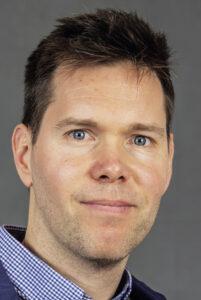
András Nagygyörgy
director of external relations
Hungarian Food Bank
Association
“Our goal is to find and rescue unsold food with an imminent expiry date or damaged packaging, which is still fit for human consumption. The products collected are used to help people in need”,
says András Nagygyörgy, director of external relations at the Hungarian Food Bank Association.
Members currently visit more than 700 supermarkets every morning to collect surplus food from the previous day, mainly bakery products, vegetables and fruit, so that they can distribute them before they expire. In 2024 an average of 30,000kg of food was saved every day and donated to more than 200,000 people. Food Bank also started rescuing intact ready meals from corporate events, venues, concerts and even schools in spring 2023.
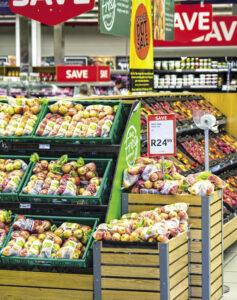
Food rescue workers visit more than 700 supermarkets a day to collect surplus food from the previous day
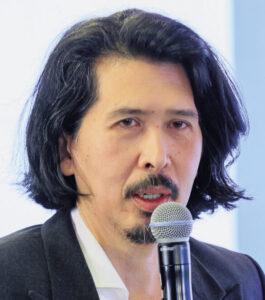
Zoltán Fekete
secretary general
Branded Goods
Association Hungary
Branded Goods Association: theory vs. practice
Zoltán Fekete, secretary general of Branded Goods Association Hungary believes that leading FMCG brands have a big responsibility and therefore a lot of work to do in the field of environmental awareness.
“When asked, manufacturers, retailers and consumers are now more or less well versed in what we need to do together for a more sustainable life, in manufacturing, in business, and in consumption – even in the smallest habits of everyday life. But in practice there is still a lot of work to do and a long way to go”,
opines Zoltán Fekete.
He calls attention to the fact that it isn’t always the big brands that show the way to the smaller ones: it is increasingly common for emerging brands and start-ups to come up with ground-breaking solutions and models, which are then adopted by the big players. The EPR and DRS systems put a huge financial and administrative burden on market players, and in the current economic climate this makes the sustainability arena even more difficult to navigate.

In 2024, it is no longer commercially profitable to let stocks with damaged packaging or otherwise stuck go to waste
FÉSZ: focus on awareness-raising

Attila Vörös
managing director
FÉSZ
FÉSZ aims to provide members with as much information as possible about sustainability.
“The lion’s share of our task is reverse attitude shaping. Today most manufacturers in Hungary come across sustainability through a specific task to be carried out, such as reporting obligations or commitments. On the other hand, a successful certificate or report can only be the end result of an approach adopted much earlier”,
says Attila Vörös, managing director of the Federation of Hungarian Food Industries (FÉSZ).
In his view most manufacturers tend to identify sustainability with a specific target area, rather than looking at the big picture. FÉSZ’s managing director has two visions for the future. The realistic is that Hungary will continue to lag behind other European food producers, while the optimistic is that the domestic food industry will regain consciousness at the last moment.

We are already very good at sustainability in our heads, and especially in our hearts, but our wallets still limit our possibilities
BCSDH: on the path of knowledge sharing
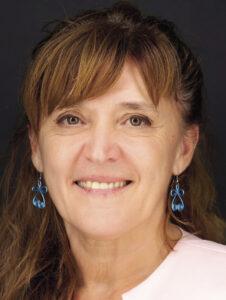
Irén Márta
managing director
BCSDH
As a value-creating community of business leaders, the Business Council for Sustainable Development in Hungary (BCSDH) is looking ahead to create a business environment where responsible business practices are also a competitive advantage. The organisation addresses some of the most pressing global business challenges. They have working groups on the most important topics and run a number of training courses.
“Knowledge sharing and a large network of contacts are our most basic tools. Thanks to international cooperation, we are also involved in the preparation of directives and standards. This makes it possible for our members to get acquainted with the new regulations already in the preparatory phase”,
explains Irén Márta, managing director of BCSDH.
She adds that a large proportion of companies are now busy complying with the CSRD and ESG regulations, but the most urgent is immediate action to achieve the sustainability goals.
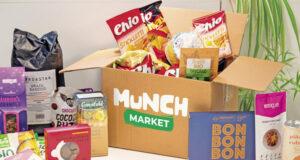
Last year saw the launch of Munch Market, where hard-to-market products can be bought at budget-friendly prices
Munch: another link in the supply chain involved
Munch offers a simple solution to the complex problem of food waste for shops and customers alike: through the platform, bakeries, restaurants, confectioneries, hotels and shops sell the day’s unsold but good quality food, which app users can buy in the form of surprise packages with a 50-70% discount.

Botond Zsoldos
co-founder and
chief innovation officer
Munch
“Experience is that Hungarians are increasingly open to sustainable solutions: this is proven by the fact that more than two million bags of food have already been saved from the waste bin in Hungary via Munch. We also offer content and tips that raise awareness on our social media platforms and in our communication channels”,
says Botond Zsoldos, co-founder and chief innovation officer at Munch.
In Hungary more than 2,700 partners have already joined the Munch initiative, and last year brought the launch of Munch Market, where users can buy products from producers and wholesalers that would be difficult to sell at full price due to overproduction, seasonality or slow sales – at budget-friendly prices. //
Related news
Fashion, drones and sustainability – the new face of agriculture at the AgriTech InnoExpo event
🎧 Hallgasd a cikket: Lejátszás Szünet Folytatás Leállítás Nyelv: Auto…
Read more >dm welcomes customers with stable prices and a superb price-value ratio
🎧 Hallgasd a cikket: Lejátszás Szünet Folytatás Leállítás Nyelv: Auto…
Read more >ESG: the majority don’t ask for postponement, preparedness level is increasing
🎧 Hallgasd a cikket: Lejátszás Szünet Folytatás Leállítás Nyelv: Auto…
Read more >Related news
The Hungarian Food Book is 50 years old
🎧 Hallgasd a cikket: Lejátszás Szünet Folytatás Leállítás Nyelv: Auto…
Read more >ZEW: Economic expectations worsened in Germany and the euro area in February
🎧 Hallgasd a cikket: Lejátszás Szünet Folytatás Leállítás Nyelv: Auto…
Read more >








